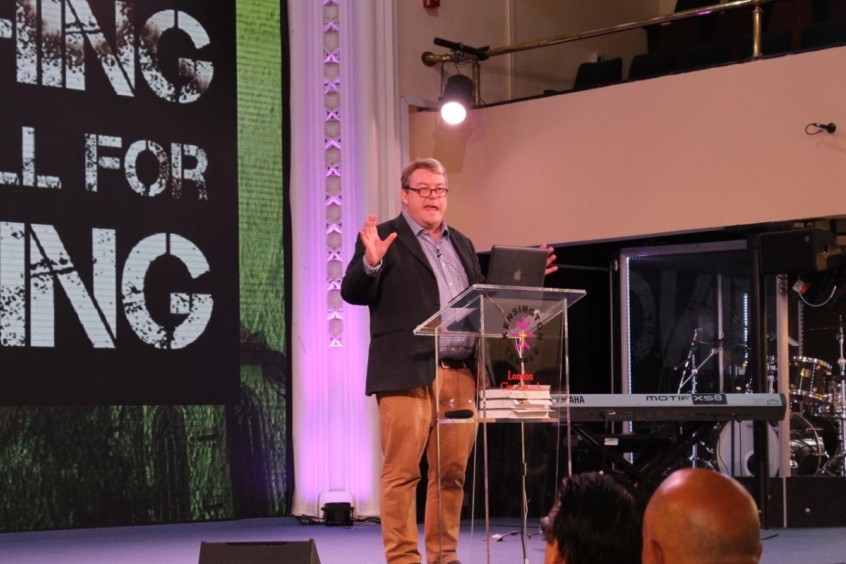
Martin Luther's key message was, 'Back to the Bible' – and the 21st-century Church desperately needs to hear it.
That's according to Greg Downes, Theologian and Missioner at The Belfrey church in York and a speaker at the Luther 500 conference at London's Kensington Temple.
The conference is designed to mark 500 years since the publication of Martin Luther's 95 Theses, regarded as the beginning of the continental Reformation that was to have a seismic effect on the Church. Speakers include RT Kendall, Malcolm Duncan and Rt Rev Graham Tomlin.
The 95 Theses were an attack on the practice of selling 'indulgences' – time off purgatory – to raise money for the Catholic Church. However, their application was much wider, foreshadowing Luther's revolutionary teaching of justification by faith alone.
While many of Luther's ideas were not new, Downes described their publication as a 'tipping point'. He quoted Victor Hugo, who said: 'There is nothing more powerful than an idea whose time has come.'
Downes took 12 of the Theses – short statements of only a sentence or two – and showed their relevance to today.
For instance, Luther wrote: 'It is certain that when money clinks in the money chest, greed and avarice can be increased; but when the church intercedes, the result is in the hands of God alone.'
Downes said: 'Obsession with money brings greed but obsession with prayer can bring supernatural results.' He criticised the 'excesses' of the prosperity gospel, saying: 'Christianity is not a money-making endeavour.'
Luther wrote: 'The true treasure of the Church is the most holy Gospel of the glory and grace of God.'
As Downes put it: 'The gospel is the only thing the Church has to offer.' He said that if the Church loses confidence in the gospel it will replace preaching repentance with social action or other forms of activity worthy in themselves. 'In the end, it's the only thing we have to offer,' he said. 'The modern church in danger of theological amnesia.'
Speaking to Christian Today, Downes said: '"Back to the Bible" would be Luther's essential message.'
One of the great things about the Reformation, he said, was its affirmation of the power of individual conscience and reason. However, this had often produced theological confusion and liberalism, which he said was 'rife' in the Protestant world.
Downes said: 'Luther was breaking free from the "magisterium" [the teaching authority of the Catholic Church] not so that his conscience and his reason could be totally freewheeling, but so that it could be captive to God's word in the Scriptures.
'So when we move away from the Scriptures, we end up up in theological anarchy and liberalism that denies the authority of the Scriptures.'
He stressed the Reformers' principle of the 'perspicuity of Scripture'. 'It isn't that the Bible is clear on everything, but it is clear on issues of primary importance,' he said. 'There is a clarity to the gospel. I think some Christians, when say the Bible is not clear about something, they're just in denial about the authority of Scripture. So for example, the physical resurrection of Jesus – anyone who denies that may say, "I have a different interpretation", but actually they're not being submitted to Scripture.'
He said Luther was profoundly important even in terms of secular history. However, for Christians his significance lay in how he called the Church back to the Scriptures.
'A Christianity that doesn't accept the Scriptures as authoritative is an anomaly and a deviation from apostolic Christanity,' he said. 'And I think that's what we're seeing all around the world. Partly it's a response to secularism, where people say, "What we believe is incredible, quite literally, so perhaps we need to make fewer demands of people." But history shows theological liberalism empties churches, it doesn't fill them. So it's actually a spent experiment in terms of church growth, but it's also fundamentally wrong.
'The centrality of the Bible, the primacy of the Bible, the authority of the Bible – that's something we need to hear as 21st century Christians today.'













